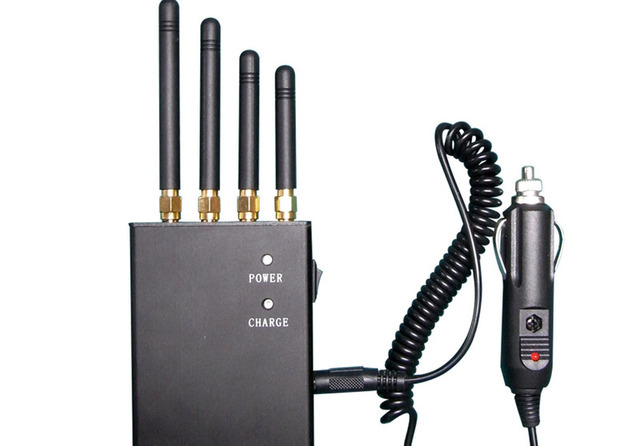
During the GNSS Vulnerability 2012 event at the UK's National Physical Laboratory on Wednesday, experts discussed the threat posed by a growing number of GPS jamming and spoofing devices. The increasing popularity of the jammers is troubling, according to conference organizer Bob Cockshott, because even low-power GPS jammers pose a significant threat to cell phone systems, parts of the electrical grid, and the safety of drivers.
Since cell phone towers and some electrical grid systems use GPS signals for time-keeping, GPS jamming can throw them off and cause outages. "We're seeing a large number of low power devices which plug into power sockets in a car," Cockshott told Ars. "These devices take out the GPS tracker in the vehicle, but they also create a 'bubble' of interference, sometimes out to up to 100 yards. They're illegal, so their quality control is generally not good."
There has also been an emerging threat from more powerful GPS "spoofing" systems, according to Cockshott, who is also the director of Position, Navigation and Timing technology for the UK's ICT Knowledge Transfer Network. GPS spoofing attacks can provide both inaccurate location and time information, potentially creating much larger problems than a dropped call. "There have been incidents where trucks carrying high value goods have been hijacked," he said, "where GPS and cell phones have been blocked."
While such incidents have been rare, Cockshott said, these more high-powered jamming systems cause the greatest concern. The equipment on the systems have power equivalent to that aboard GPS satellites, he said, "but they're not 10,000 miles away—they're a mile away." Use of these sorts of attacks by criminals or terrorists, especially in bad weather, could lead to the grounding of ships in constrained channels like the Strait of Dover, or cause problems with GPS-based air traffic control.
One of the presenters at the conference, University of Texas assistant professor Todd Humphreys, presented findings on the impact of spoofing and jamming on cell phone systems. Humphries, who claims his lab possesses the most powerful civilian-owned GPS spoofer, said that in US tests, his research team succeeded in interfering with timing devices used in cellular network towers, breaking down synchronization between cells and preventing calls from being handed off from one cellular station to another. "So far, no credible high profile attack has been recorded," Humphreys said, "but we are seeing evidence of basic spoofing, likely carried out by rogue individuals or small groups." It's a major technological leap from basic spoofing to more technically advanced systems, but "all it takes is someone to put one together and publish it online and we have a major problem."
Small short-range jammers have created isolated problems in the US. In late 2009, a single truck using a GPS jammer caused headaches for technicians at Newark Liberty International Airport as it interfered with a navigation aid every time the truck passed on the New Jersey Turnpike. Truck drivers and other drivers who want to conceal their movements from tracking devices sometimes use basic GPS jammers embedded in their vehicles. Trucking companies use GPS systems to monitor the location of their trucks and cargo, and to keep tabs on their drivers' compliance with company rules and federal regulations. Auto rental companies use GPS in the US to track whether customers violate the terms of a rental contract by speeding or leaving a geographic area. GPS is also being used by auto insurance companies for "pay as you go" policies that offer reduced rates for drivers, metering their bill based on how far and when they drive, as well as other factors.
To get a sense of the extent of the use of these jammers and the reliability of GPS signals, the UK's National Physical Laboratory is taking part in a research project called SENTINEL, along with a coalition of other organizations and companies led by navigation equipment manufacturer Chronos Technology. So far, the project has installed 20 sensors at roadside locations throughout the UK to detect GPS jamming "incidents." Over the last six months, one sensor alone recorded over 60 incidents of GPS jamming. Another GPS jamming "probe" provided results that actually resulted in law enforcement retrieving a jamming device based on the regularity of its use.
Listing image by Photograph by www.jammerall.com
reader comments
102